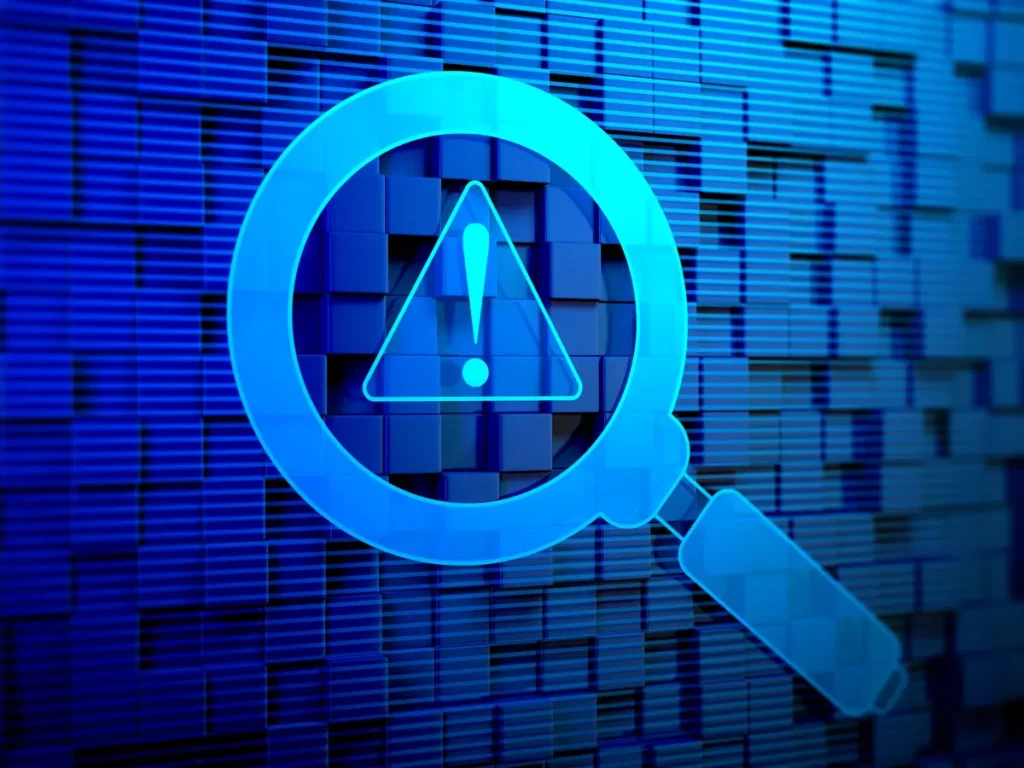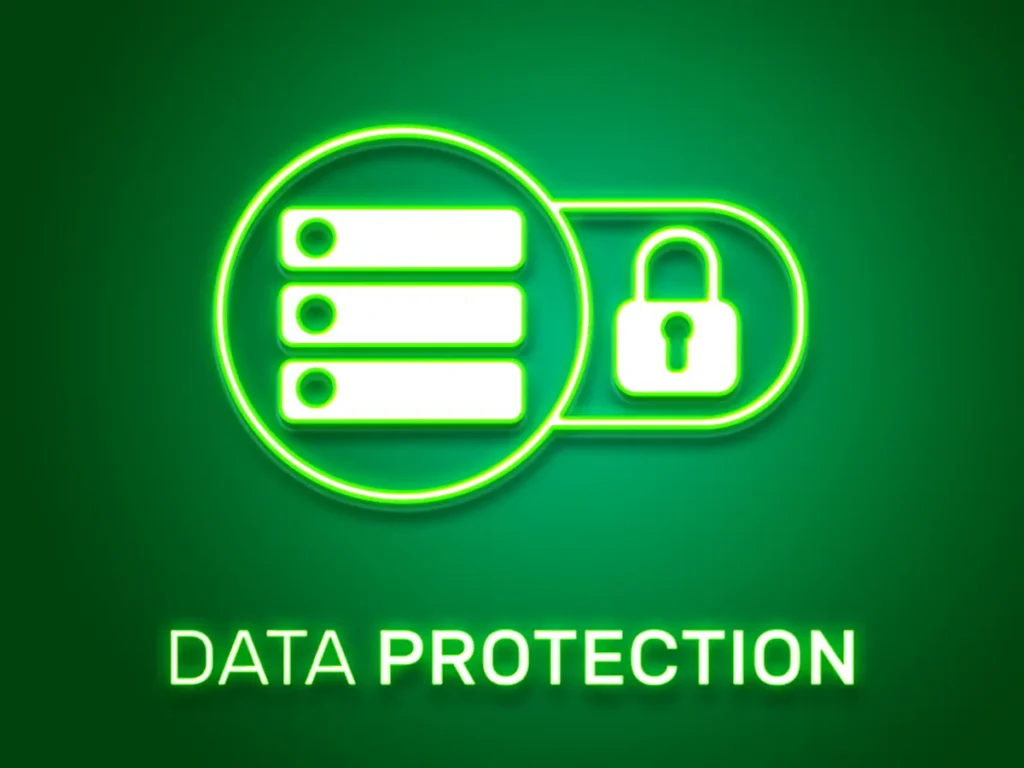Cloud Security Best Practices for Kenyan Startups

Cloud security refers to the policies, technologies, and controls deployed to protect data, applications, and infrastructure in cloud computing environments.
Learn How to Protect Your Business and Team from Modern Cyber Attacks

Modern cyber attacks target small businesses, too. Learn practical steps to protect your team, data, and reputation, no tech jargon, just solutions.
Top 7 Data Protection Mistakes in Healthcare in Nigeria

Discover 7 common data protection mistakes in Nigerian healthcare and how to fix them. Stay compliant and protect your patients’ trust and data.
Data Protection Law in Kenya: A Guide for Businesses and Consumers

Learn how the Data Protection Law in Kenya protects your personal information and what businesses must do to stay compliant.
How to Become a Data Protection Officer in 2025

Data privacy is definitely something organizations need to think about, especially when they’re dealing with a lot of confidential information. Learning about the role of a data protection officer and what it takes to get a job in this profession can help you decide if it matches your talents, training, and preferences. For me, the journey into data privacy started while working in a tech-related role where I often found myself intrigued by how sensitive data was managed and protected. As I dug deeper, I realized just how critical data protection is to the trust and success of any organization. That curiosity eventually led me to explore the role of a Data Protection Officer, pursue relevant training, and seriously consider building a career in this space. In this article, we will look into the role of a data protection officer, provide six steps for how to become a data protection officer, and discuss the skills, key responsibilities, job roles, and certifications required for this position. What is a Data Protection Officer? A data protection officer is someone who focuses on keeping a company’s crucial information safe while working within the company. To do this, a data protection officer can develop and implement effective data protection policies and technologies, as well as communicate the importance of data security to all personnel. They can also conduct research and comprehend all data compliance needs to ensure that an organization remains legally compliant. Some organizations are required to have a data protection officer, while others might decide to fill this role voluntarily to help prevent expensive data security breaches. Read more about the importance of data security. What Does a Data Protection Officers Do? Here are some of the tasks that a data protection officer may perform on a regular basis: Read more about How to Ensure Data Protection Compliance in Kenya How to Become a Data Protection Officer (DPO)? Becoming a data protection officer involves a mix of knowledge, experience, and qualifications. Here is a step-by-step guide that will help you get there: 1. Understand the Role and Legal Frameworks Before becoming a data protection officer, you have to first understand the data protection rules and regulations. Understanding these legal frameworks is crucial to the DPO’s capacity to complete their job successfully. 2. Education and Background Another approach to becoming a data protection officer is to use your educational background. It’s important to know that there is more than one way to become a data protection officer. Most of the people who work in this field have experience in law, IT, compliance, or business administration. Since data protection is related to both privacy law and cybersecurity, a lot of DPOs have skills in law, information security, or IT. Also, as a DPO, you need to have a deep knowledge of how the company works and how its data is managed. 3. Develop Core Skills To do well as a DPO, you’ll need to learn several types of skills, such as: 4. Certifications Needed to Become a DPO Having certifications can make you look much more trustworthy and improve your chances of getting a DPO job. The following certifications are widely recognized and can help you learn how to become a certified data protection officer: Learn more about ISO Training 5. Practical Experience As a data protection officer, you must have practical experience in IT, compliance, data security, or legal counsel jobs. It can be helpful to have prior experience in positions such as privacy consultant, compliance manager, or IT security officer. To become a good DPO, you should also work on data privacy projects and talk to upper management about compliance problems. This will help you learn the skills you need. 6. Stay Updated Data protection laws and best practices are always changing. So, as a good DPO, you need to stay informed by joining conferences, webinars and taking online courses. Joining professional associations like IAPP is a great way to keep up with the latest trends and updates. Key Responsibilities of a Data Protection Officer Here are the key responsibilities of a DPO: Job Roles and Opportunities for a DPO A DPO’s role is extensive and covers a wide range of sectors. Below is a summary of the typical job roles performed by DPOs: Data Protection Officer Skills Here are some skills you could utilize in a data protection officer career. Data Protection Officer Job Description Although each data protection officer’s job description will be unique to the company or organization. The following are some recent LinkedIn posts that provide samples of real-world duties: Data Protection Officer Education Requirements According to the cybersecurity guide, data protection officers often hold a BA or BS degree in computer science, information security, or a related field. It also states that a bachelor’s degree or comparable professional experience in privacy, compliance, information security, auditing, or a similar sector may be considered as an alternative. Generally speaking, an advanced degree is not necessary, though it can be depending on the role. Even if it’s not necessary, gaining an advanced degree has several advantages. It can give you practical experience, show that you’re capable of continuing your education, and give you an advantage over other job candidates. Professional Certifications For Data Protection Officer Depending on the role, certifications might be necessary. They are quite valuable for being an effective data protection officer. Among the most well-liked ones are: Read more about top data security certifications that can improve your career. Conclusion If you’re looking to embark on a career in data protection. Pursuing a path to becoming a data protection officer is a wise choice. With the right knowledge, certifications, and experience. You can take on a key role in ensuring the safety and privacy of sensitive information. You can get started by exploring training and certification options through Johan Consults. A trusted provider in data protection education and career development.
Why Your Tech Startup Needs Data Protection in Nigeria

Let me ask you a simple question: Is your tech startup truly safe from data breaches and privacy risks? Nigeria’s digital world is changing so quickly that protecting user data isn’t just the right thing to do—it’s a must. Data protection in Nigeria has become a significant concern, particularly for startups that handle sensitive customer data. Nigeria has strict data protection laws. If you don’t follow them, you could face hefty fines, damage to your reputation, or even the closing of your business. For instance, Let’s look at this cautionary tale of BrightPay: A Nigerian fintech startup that was rapidly growing. With thousands of users and growing investor interest, the future seemed promising—until an unforeseen disaster struck. One morning, users reported unauthorized access to their accounts. Unapproved transactions appeared, and confidential financial data was exposed. The root of the problem? BrightPay lacked a comprehensive data protection policy in Nigeria to secure this information. Within weeks, they faced legal actions for breaching data protection laws in Nigeria, lost investor trust, and ultimately had to cease operations. Could this disaster have been prevented? Absolutely. By creating a strong framework for data protection and privacy in Nigeria, BrightPay could have protected its customers’ data, complied with regulations, and preserved its business. This incident underscores the critical importance of tech startups in Nigeria to implement strong data protection measures. Compliance with the Nigeria Data Protection Regulation (NDPR) is critical for safeguarding sensitive information, maintaining consumer trust, and ensuring business continuity. In today’s digital era, protecting user data isn’t merely a legal obligation—it’s essential for survival. Let’s take a look at why data protection in Nigeria is crucial for your tech startup and how you can proactively prevent potential risks. The Rising Need for Data Protection in Nigeria The urgency for data protection in Nigeria is increasing as the country rapidly adopts digital transformation. The increase in online banking, e-commerce, and fintech solutions has led to the wide collection of personal data by businesses and government agencies. However, this Rapid digitization presents considerable risks, including a rise in cyber threats and an increase in the frequency of data breaches. This has made Nigerians more exposed to financial fraud and identity theft, pointing out the critical importance of data privacy and protection in the country. Individuals are increasingly aware of their rights and are demanding for more strong policies to protect their information. This has resulted in a greater focus on data protection in Nigeria, with the Nigeria Data Protection Regulation (NDPR) acting as an essential framework. However, enforcement remains a struggle, exposing vulnerabilities for fraudsters to exploit. This fear comes from the rise of fintech and digital payments, as Flutterwave, Paystack, and Opay process millions of transactions every day. Maintaining confidence in Nigeria requires data protection and privacy compliance. As remote work and cloud-based services have grown, organizations must adopt a data protection policy in Nigeria that fulfills local and international regulations. Meanwhile, data protection companies in Nigeria are offering security solutions, but enterprises must be proactive. Since strong data protection laws in Nigeria are crucial to global business collaborations, international investors are also watching. Companies that violate these standards risk losing credibility, investments, and customer trust. Read more about How to Choose the Right Data Protection Service Consultancy In Nigeria Why Your Startup Needs a Strong Data Protection Policy in Nigeria For tech startups, data safety is critical to building trust. If your customers think their personal information is in danger, they won’t want to stay. Because data protection rules lower regulatory risks, investors also want to know that the businesses in their portfolio are operating legally. Many early-stage teams believe they don’t need to care about data security, but this is a dangerous concept. You can be sure that bad people will try to get through your defenses when you’re making something online. And when that time comes, having a solid data protection plan could make the difference between surviving a crisis and facing catastrophe. There are real-life examples of companies in Nigeria that face the consequences of data privacy or data protection lapses: These enforcement actions underscore the NDPC’s commitment to upholding data protection laws and holding organizations accountable for safeguarding customer data in Nigeria. How Can Data Protection Companies in Nigeria Help? If managing data security seems overwhelming, consider working with Johan Consults a data protection company in Nigeria. Our company provides expert guidance on: Final Thoughts To succeed in the digital era, businesses and regulators in Nigeria need to prioritize data security and adhere to data protection laws. Enhancing cybersecurity frameworks, implementing stricter regulations, and educating organizations on best practices are essential for protecting sensitive information. A secure digital environment not only safeguards individuals. But also enhances confidence in data protection in Nigeria, facilitating innovation and sustainable growth. Immediate action is necessary, as data in the contemporary context transcends mere information and represents a significant source of power. Ready to secure your startup? Contact us at Johan Consults to take action today and ensure your business complies with Nigeria’s data protection regulations!


